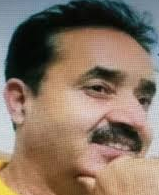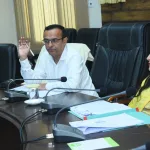The Congress party’s renewed call for a return to ballot paper voting has reignited the debate about the credibility of Electronic Voting Machines (EVMs) in India’s electoral process. This demand, articulated by Congress President Mallikarjun Kharge following the party’s recent losses in Maharashtra and by-polls, has been presented as a step to ensure electoral transparency. Rahul Gandhi is expected to lead a nationwide yatra to rally support for the cause, similar to his Bharat Jodo Yatra. However, this demand has drawn criticism from the Election Commission of India (ECI) and the Supreme Court, both of which have consistently upheld the integrity of EVMs. The assertion that EVMs are unreliable or vulnerable to tampering has been dismissed as baseless and politically motivated, particularly since the results of numerous elections have demonstrated their accuracy.
The EVM has been a cornerstone of India’s electoral system since its introduction in the early 1980s and its widespread adoption in 2004. Its implementation has streamlined the voting process, eliminated invalid votes, and significantly reduced the scope for electoral fraud. Despite these benefits, several political parties, particularly the Congress, have periodically raised doubts about EVMs’ reliability—often after suffering electoral defeats. This trend of questioning EVMs only when results do not favor a party undermines the credibility of the allegations and casts them as attempts to deflect from the reasons for electoral losses.
Congress’s primary argument against EVMs revolves around their alleged lack of transparency and the potential for manipulation. The party contends that ballot paper voting provides a visible and tangible record, which they claim is more trustworthy. This sentiment resonates with some voters who are unfamiliar with the technical safeguards of EVMs and may be swayed by the perceived simplicity of the ballot paper system. However, this perception does not hold up against the facts. EVMs are standalone devices that are not connected to any network, including the internet, rendering them impervious to remote hacking attempts. Moreover, the machines are subjected to rigorous testing and auditing before deployment, with representatives from all political parties invited to participate in the process.
The Election Commission has consistently maintained that EVMs are highly secure and tamper-proof. Their design incorporates multiple layers of security, and their randomization process ensures that no one knows which machine will be assigned to a specific polling station until the very last moment. Additionally, the introduction of the Voter Verifiable Paper Audit Trail (VVPAT) system has further enhanced the transparency of the process. VVPAT allows voters to verify their choice through a printed slip that is visible for a few seconds before being securely stored in a sealed box. This creates an additional layer of accountability, enabling manual audits when required.
The Supreme Court has also dismissed allegations of EVM tampering, highlighting the absence of credible evidence to support such claims. It has upheld the ECI’s position that EVMs are robust, reliable, and efficient. Importantly, the Court has mandated the use of VVPAT slips in randomly selected polling booths for cross-verification, ensuring an extra layer of trust in the system. In every instance where VVPAT slips have been matched with EVM results, the accuracy of the machines has been confirmed. These findings reaffirm the reliability of EVMs and undermine the narrative that they can be manipulated.
Despite these assurances, the demand for ballot paper voting persists, rooted in a misplaced belief that it is inherently more transparent. While ballot papers may offer a physical record of votes, they are far more susceptible to tampering and malpractices such as booth capturing and ballot stuffing. These issues plagued Indian elections before the introduction of EVMs and were a major factor in the shift to electronic voting. Moreover, manual counting of ballot papers is labor-intensive and prone to human error, leading to delays and disputes. In contrast, EVMs have streamlined the voting and counting process, delivering quick and accurate results.
The argument that EVMs can be pre-programmed to favor a particular party is also unfounded. The machines undergo multiple mock polls before the actual voting day to ensure their accuracy, and any malfunctioning devices are immediately replaced. The randomization process used to allocate EVMs to constituencies ensures that no individual or organization can predict or manipulate their deployment. These safeguards make tampering with EVMs virtually impossible without an enormous and highly coordinated effort, which is logistically unfeasible in a country as vast as India.
The Congress party’s call to revert to ballot paper voting seems to be a reaction to its recent electoral setbacks rather than a genuine concern for democratic integrity. By attributing their losses to the voting system rather than examining their own shortcomings, the party risks alienating voters who expect introspection and course correction. Electoral success depends on a party’s ability to connect with the electorate, present compelling policies, and demonstrate effective leadership. Blaming the electoral machinery for defeats diverts attention from the need to address these fundamental issues.
The selective questioning of EVMs further undermines the credibility of the Congress’s demand. When opposition parties win elections conducted with EVMs, the results are accepted without question. However, when the same parties lose, they often raise doubts about the machines’ reliability. This inconsistent stance suggests that the issue is not with the technology but with the inability to reconcile electoral outcomes.
India’s adoption of EVMs represents a significant technological advancement in the democratic process. The machines have been widely recognized for their efficiency, reliability, and ability to curb electoral malpractices. Many countries have studied India’s EVM model and sought to implement similar systems. Reverting to ballot paper voting would not only be a regressive step but also a logistical nightmare, given the scale of Indian elections. The resources and manpower required for ballot paper voting far exceed those needed for EVMs, making it an impractical solution.
The demand for ballot paper voting is also at odds with the global trend toward technological innovation in governance. In an increasingly digital world, clinging to outdated methods undermines the progress made in enhancing electoral transparency and efficiency. Instead of questioning the tools of democracy, political parties should focus on strengthening their engagement with voters and addressing the issues that matter to the electorate.
The debate over EVMs and ballot papers must ultimately center on facts rather than perceptions. EVMs have been subjected to rigorous scrutiny by experts, the judiciary, and the Election Commission, all of whom have affirmed their reliability. The introduction of VVPATs has further bolstered public confidence in the system. Claims of tampering or manipulation lack substantive evidence and serve only to distract from the real challenges facing political parties.
In conclusion, the Congress party’s demand for a return to ballot paper voting reflects a failure to acknowledge the advancements and safeguards in India’s electoral system. EVMs, with their robust security features and proven track record, are a cornerstone of fair and efficient elections. Rather than regressing to an outdated and flawed system, political parties must focus on building trust with voters and addressing their concerns. The integrity of India’s democracy lies not in the tools used but in the collective commitment to uphold its principles. It is time to move forward and strengthen our democratic institutions, leaving behind unfounded doubts and distractions.
(Author is a columnist and can be reached at: [email protected])








